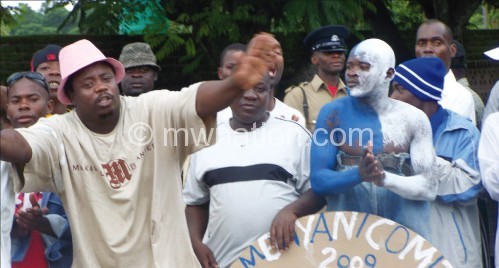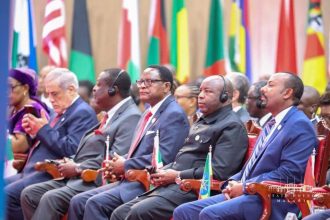Fans killing Malawi football

Apart from Super League teams belonging to government institutions such as the Army and the police, most teams in the top-flight league lack clear ownership, a development that affects their operations and has been a catalyst to violence as no one seems to be in control, Malawi National Sports Council has observed.
Unlike the trend in other Sadc countries, executives of football clubs with large fan base such as defending champions Silver Strikers, Mighty Wanderers and Big Bullets are chosen by supporters.
The council has since urged Super League teams to define ownership in their respective clubs if there is to be progress in Malawi football management.
In an exclusive interview with Weekend Nation on Tuesday, Sports Council executive secretary George Jana said there is great confusion as to who runs the clubs in the top league.
“Some clubs operate as if they were under the authority of supporters while others seem to be run by executive committees. There should be a proper apportioning of powers as to who is responsible for what,” said Jana.
“It is the responsibility of the board of trustees of each club to define the structure of their club. There is need to define ownership so that someone should be accountable,” he said.
He warned that without proper definition of club ownership, it will be impossible for clubs to turn commercial.
It has been established that executive committees at most clubs have failed to operate smoothly because they are at the mercy of the fans such that they will bow down to fans’ wishes to safeguard their positions.
The council is of the view that in the absence of proper ownership of a club, an executive committee should be appointed by the board of trustees rather than supporters.
“Much as the success of this idea depends on operational needs of each club, based on the confusion that has rocked club football in the country, it is the best solution,” said Jana.
Despite being established as a social entity for Reserve Bank of Malawi employees, Silver Strikers executive is elected by the team’s supporters.
For Big Bullets, they are yet to be registered as a company because of ownership wrangles, meaning they do not have a secretariat.
The club’s chairperson Malinda Chinyama acknowledged that some supporters’ interference has compromised corporate support.
“We operate like a political party, depending on the vote of supporters. Sometimes we have to live with the wrongs of supporters because we have to show undivided loyalty. With the current scenario, we cannot prosper as a club. Potential sponsors are reluctant to finance the team because they do not want to be controlled by supporters,” said Chinyama.
He cited the pulling out of Mulli Brothers and Cifu group of companies as examples.
Chinyama said every time Big Bullets want to be registered as a company, there is strong resistance from the fans.
“There are supporters who benefit from the team and they know that once the team is registered, they will cease to benefit and it irks them. This team could be self-reliant if it had owners. We are appealing to FAM to make it a policy that every Super League club should be registered as a company,” he said.
Former FAM general secretary Charles Nyirenda said what Sports Council is advocating is in line with Fifa recommendation that clubs should have a secretariat to run their affairs.
“Clubs must have an organisational structure with a secretariat that is appointed or employed by the board. Supporters must have their own committee with its leaders being represented at decision-making level. This is what the Lilongwe Declaration was all about,” said Nyirenda.
He said it is only in Malawi, in the Sadc region, where a club secretariat is elected by supporters.
“In Tanzania, Zimbabwe, Zambia and Mozambique clubs have secretariats that do run the daily affairs of the club. The supporters are supposed to support teams through paying membership fee or buying shares and the teams’ sports apparel like replica jerseys, apart from cheering their teams,” said Nyirenda.
FAM executive member James Mwenda, speaking in his personal capacity, said he is also of the view that an executive committee of a club should not be elected by fans.
“We have to take a professional approach by having the executive appointed by the board,” said Mwenda.
Silver general secretary Mike Tembo said the concept is good and can help clubs advance administratively and financially.
“Of course, supporters are an important element to the club’s success, but they must not be above the executive. It is a good set-up to have the board appoint people to run the club, but implementation has been difficult,” said Tembo.
Wanderers chief supporter Yona Malunga is totally against having the executive appointed by the board, saying it will “infringe on people’s rights”.
“It is like taking power away from the people. As Wanderers, we are against this. Clubs must be accountable to the supporters. If the board appoints the executive, then supporters will have no say in football matters. We cannot allow that to happen,” said Malunga.
But Chinyama said since the supporters will be represented at the board, their input would always be considered.
“And, there is always an independent audit which ensures that the executive is accountable. This is the best way for football,” he said.





